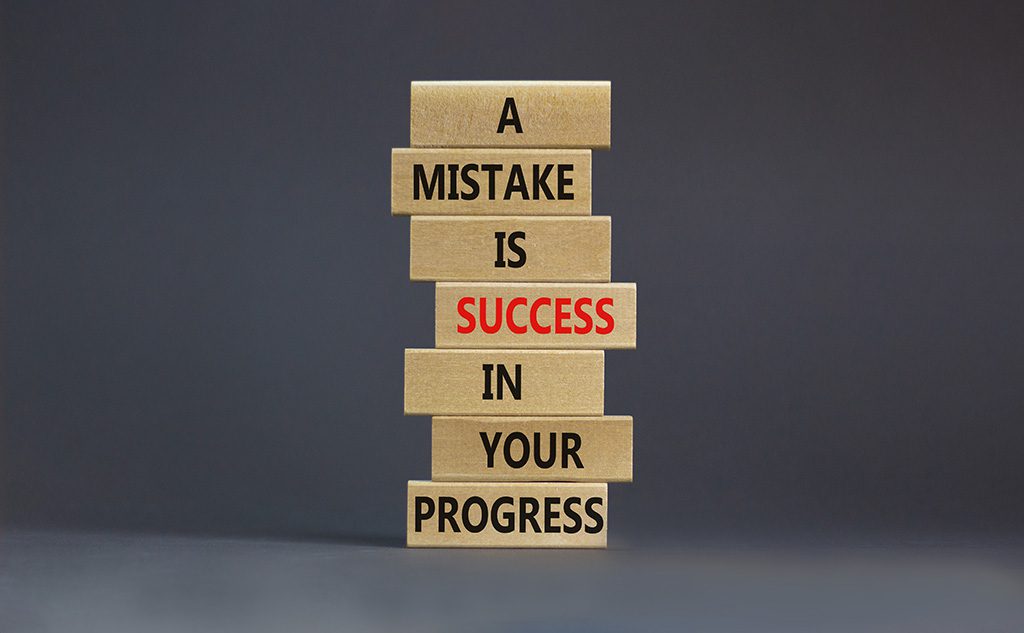
May 2, 2022 | Current Event, ICONIC, Personal Distinction
At a time when our world seems increasingly divided and fraught with conflict, it is more important than ever to be kind and compassionate toward one another. Whether interacting with customers or colleagues, friends or family members — or even total strangers — we should always try to display good intentions and show courtesy and respect.
This pervasive sense of meanness and anger in today’s culture is constantly perplexing to me. It’s showing up in our businesses and displaying itself in almost every walk of life.
A primary aspect of a great business and extraordinary customer experiences is simple respect and kindness. Here are three steps we can take to display that we care:
1. Listen more and talk less. We can learn a lot about someone by genuinely listening to them without interruption or judgment.
2. Seek first to understand, then to be understood. This is a principle from Stephen Covey’s classic book “The 7 Habits of Highly Effective People.” It means that we should try to see things from the other person’s perspective before communicating our point of view.
3. Put ourselves in the other person’s shoes. This is similar to the previous point, but it takes it one step further. Not only should we try to understand where the other person is coming from, but we should also try to empathize with them and feel what they are feeling.
Just because a person is from a differing political viewpoint, or a dissimilar religion or a different race or gender doesn’t mean they deserve disrespect. Today’s social media has created a lot of “keyboard courage” — people sending messages via Twitter or Facebook that they would have difficulty saying in person to someone. However, part of what we’re seeing is a lowering of the standards of common courtesy. After you get away with bad behavior online for a while, perhaps it becomes easier for many to assume that you can act that way in person, as well.
Here’s a fundamental challenge when it comes to this problem. As I state in the book “ICONIC,” when it comes to reciprocal respect, the key is that YOU must go first.
- This is NOT to say you should alter your opinion.
- It’s not to say you should diminish your beliefs.
- However, you cannot wait for the other person to show you respect before sending it their way.
That kind of “I’ll do it if you do” approach will never work! It is also antithetical to the principles of respect and kindness. Instead, we need to proactively show others that we care about them — not just with our words but with our actions.
By practicing these small acts of kindness and courtesy at every opportunity, we can bring more compassion and empathy into the world around us. If more people made a conscious effort to be just a bit gentler toward one another, perhaps we could begin to heal some of the wounds currently ripping our society apart.
Even if we only make a slight difference in this world, that would still be worth doing. Let’s try a little kindness today — in our daily interactions with others, as well as in our broader efforts to create a better society.

Apr 15, 2022 | Business Distinction, Daily Distinction, Personal Distinction
Easter is obviously when Christians celebrate a miracle that is central to our faith. Although my work here is never intended to be about any particular set of spiritual beliefs, it struck me when thinking about his holiday that having faith — believing in something — is critical to your success in creating distinction.
Having faith in yourself is one of the most important things you can do on the path to success. No matter your goals, if you don’t believe that you can achieve them, it will be challenging to make them a reality.
When you believe in yourself and have faith you will succeed, you will likely have both the motivation and determination to keep going even when things get tough. It allows you to see the light at the end of the tunnel and keep moving forward.
If you want to create anything significant in your life, whether it’s a successful career, a happy family, or anything else, belief is essential. If you’re lacking in this area, you need to take time to develop it. It can make all the difference in the world.
Here are three ways you can enhance your faith in your future:
- Get clear about what you want. This may seem like a no-brainer, but it’s essential to have a firm grasp on precisely what you’re striving for. Always remember, the first of the Four Cornerstones of Distinction is Clarity. When you know what your goal is, it’s much easier to believe that you can achieve it.
- Surround yourself with positive people. Just this past week, I blocked time on my calendar and spent three days with three of the most positive people I know. I left our time together with renewed vigor and purpose. You can do the same with your most upbeat, positive friends. We all know the saying that we are the average of the five people with whom we spend the most time. If you want to believe in yourself more, surround yourself with people who will support and encourage you.
- Take action towards your goals. No matter how small, every step forward is a sign that you’re moving in the right direction. Just because you believe doesn’t mean things will automatically fall into place — you still must put in the work! But when you take action towards your goals, it helps to increase your belief that you’ll achieve them.
If you want to create anything distinctive, first be certain that you believe in yourself. It will make an extraordinary difference in your results

Apr 11, 2022 | Business Distinction, ICONIC, Leadership, Personal Distinction
Mistakes are a natural part of life. We all make them — and goodness only knows, I have personally made more than my share!
One of the challenges in today’s world is the plethora of online “gurus” and so-called experts seeking to show you how to be successful, wealthy, famous, and anything else you’d want. Part of what they promise is that they’ll provide the solution to whatever your problem might be in business or life. Sometimes that message is wrapped in an air of invincibility that may lead some to imagine that their prospective teacher has never failed or made their own missteps – or that the teacher’s slight errors will prevent you from making any blunders of your own.
The difficulty with this approach — and I certainly hope I’m not guilty of it, as all I’m trying to do is deliver insights that will assist you — is that we all must make our own mistakes and learn from them in order to progress. Mistakes can teach us important lessons and help us to become better people.
Don’t get me wrong – I’m not suggesting that we should be out there intentionally making blunders! However, it’s impossible to stand out if we are in fear of not always being correct or impeccable. There are no distinctive organizations or leaders who haven’t made significant errors in judgement or choices at some point!
An essential step is understanding that personal responsibility is critical when it comes to moving up from mistakes. We must take ownership of our mistakes and learn from them. This process is not always easy, but it is essential for growth. Blaming others or our circumstances might make us feel momentary vindication for our errors, but it is also a roadblock to personal and professional development.
There is no one-size-fits-all solution for dealing with mistakes. What works for one person may not work for another. However, seven principles will help you find your way forward:
- Accept responsibility for your mistakes. This is the first and most crucial step. Denial will only prolong the pain and prevent you from learning the lessons you need to know. You must own up to your mistakes in order to move on from them.
- Acknowledge your mistakes to yourself and others. This can be difficult, but it is essential for rebuilding trust and relationships. Trust is vital for any healthy relationship. Honesty is always the best policy. It’s also a necessary aspect of building and maintaining trust with those you work with and live around.
- Seek forgiveness from those who you have harmed. This is not always possible or necessary, but it can be a helpful step in the process of moving on. Forgiveness can help to heal old wounds and allow you to move forward with your life.
- Learn the lessons your mistakes have to offer. Ask yourself what you can do differently in the future to avoid making similar mistakes. What went wrong? What could you have done differently? How can you prevent similar mistakes in the future? These are tough questions to answer, but they’re fundamental for learning and growth. Mistakes can teach us important lessons if we are open to learning from them.
- Seek out support from others. We all need, as the Beatles sang, a little help from our friends. Talk to someone you trust about your mistakes and how you’re feeling. This can be a great way to get some perspective and start moving on.
- Forgive yourself. This can be difficult but is essential. We all make mistakes; it’s part of being human. What counts is how we learn from our mistakes and become better people and professionals as a result. Obsessing over your errors with anger and resentment will only eat away at you and prevent you from moving forward.
- Put your mistakes behind you. Once you have learned from your mistakes and taken the previous steps listed here, it’s now time to put them behind you and move on. This doesn’t mean forgetting about what happened; it just means that you refuse to continue dwelling on it. As the old saying goes, there’s a reason the windshield is larger than the rearview mirror. You have to keep looking forward. Holding onto mistakes will only drag you down and prevent you from achieving your fullest potential.
My great friend, Skip Prichard, wrote a remarkable book about this subject — it’s even titled “The Book of Mistakes.” I highly recommend it.
Mistakes are a natural part of life, but that doesn’t mean we have to like them! As mentioned earlier, I’ve certainly made them — and will undoubtedly continue to do so. However, it’s impossible to create distinction without sometimes making a misstep. Move on from your mistakes and continue progressing in your personal and professional life.
One way to avoid unnecessary mistakes – or to maximize what you learn from them – is through professional coaching. We offer coaching to a limited, select few leaders. If you’d like more information on our Distinctive Coaching, just reach out to us and let’s talk!

Mar 26, 2022 | ICONIC, Leadership, Personal Distinction
Make an enemy of certainty and befriend doubt. When you can change your mind, you can change anything.
Kevin Ashton
As Tammy and I sat in church this past Sunday, our minister, Vince Antonucci, began his sermon on a topic not often discussed in many religious services: the importance of doubt. Vince’s insights started me thinking about the importance of doubt — and why we should embrace ours.
Doubt creeps into our thoughts and lives in every regard — not just in religion and the meaning of life. We doubt our abilities as leaders, professionals, and parents. Typically, we try to eliminate all our doubts — but perhaps that is not the best course of action.
Doubt can be a healthy thing. It can help us examine our viewpoints and question whether they are accurate. Doubt can also lead to greater confidence because we know that we have thought through our positions and are not just blindly following them.
However, doubt can also be confusing and frustrating. It can make us feel like we are not good enough or are not progressing. If doubt is constant, it can lead to anxiety and paralysis.
“If a man will begin with certainties, he shall end in doubts; but if he will be content to begin with doubts, he shall end in certainties.” ― Francis Bacon
Here are three steps to dealing with doubt:
- Acknowledge your doubt. Everyone has doubts at times. Doubt is a normal part of the human experience. When you find yourself doubting your abilities, it is crucial first to acknowledge the feeling. Do not try to push the doubt away or ignore it. Just accept that it is there and allow yourself to feel it.
- Examine your doubt. Once you have acknowledged your doubt, you can then examine it. Examining your doubt means thinking through why you feel doubtful and what is causing the worry or fear.
- What is causing you to doubt yourself?
- Is there evidence to support your doubt?
- Or is your doubt based on irrational thoughts?
- Is there a specific event or situation that is making you question things? Or is it more generalized anxiety?
- Try to identify the source of the doubt and explore it further.
- Find a balance. Once you have examined your doubt, you can then work on finding a balance. It is essential to have some doubts in order to question our perspectives and ideas. But too much doubt can lead to paralysis and anxiety. Try to find the middle ground where you can listen to your doubts, but also trust yourself and your abilities.
It’s not my goal to make a political statement here, but I have to wonder if a bit of doubt and questioning of himself might have served Mr. Putin well in the current crisis. Many outside observers believe that he entered the current conflict with overwhelming (and inaccurate) certainty. It is also reported that he surrounds himself with “yes-men and women” who refuse to question or challenge his ideas and perspectives.
During the Cuban Missile Crisis, John Kennedy constantly challenged his advisors to offer contradictory viewpoints. He embraced doubt and rejected his Generals when they presented approaches with abject certainty. He relentlessly played the “what if” game with his team to analyze every possible move and potential response. The result is the world was spared a nuclear war.
Learn to listen to your doubts and question them. But also learn to trust yourself and your abilities.
It’s not that iconic professionals and leaders are without doubts. Instead, they know how to embrace and leverage their doubts into greater productivity and performance.

Mar 19, 2022 | Business Distinction, ICONIC, Leadership, Personal Distinction
There are so many variables competing for our attention today it’s easy to get bogged down in the minor details and lose focus on what’s important. When trying to achieve a critical task, it’s crucial to stay focused and not let distractions get in the way.
It’s all too easy to let the minor things take priority over the significant goals. But if you want to succeed, you need to learn to control your focus and stay on track. Don’t let the minor things overshadow the major ones – focus on what’s important and achieve your goals! Only by keeping your eye on the prize can you achieve great things.
The late, great business philosopher, Jim Rohn, used to ask, “Are you majoring in minor things?” It’s a brilliant question. Frequently, we can get so caught up in the details that we overlook the primary purpose. We focus on the small aspects rather than what’s most important.
Remember, the first Cornerstone of Distinction is CLARITY! It’s essential to keep your priorities straight so you can create distinction. Knowing what is truly important makes it easier to stay focused and motivated.
- Stay in control of your focus, and don’t let distractions get in the way of your success.
“The more you know, the more you realize how much you don’t know.” – Aristotle.
Knowledge is the first step to power. The most innovative people are constantly learning and expanding their horizons. The more you learn, the better equipped you’ll be to focus on what’s important and achieve your goals. Don’t be afraid to ask for help – there’s no shame in admitting you don’t know everything.
The second step, however, is action. We often joke about being online and going “down the rabbit hole” — in other words, we get so distracted and engaged with the next link online or the next video on YouTube that we spend hours on the trivial than the vital. If knowledge were all that was necessary to achieve success, the center of the universe would be on college campuses.
Here are three steps to maintaining focus:
1. Know your priorities.
It’s only recently that the word “priority” also had a plural version. The word priority was created to signify the one aspect that was THE most important of all items we are considering. It’s essential to limit the number of items you’ll focus on — and know them thoroughly.
2. Stay disciplined
The importance of discipline is frequently underrated. It’s the ability to do what you should do when you should do it, whether you feel like it or not. It’s the key to achieving success and staying on track. Discipline allows you to focus on your goals and ignore distractions.
3. Take action!
With so many distractions today, it can be easy to lose focus on what’s important. If something is essential, you’ll find a way to get it done. But if you want to achieve great things, you need to stay focused and go to work! It’s up to you to take control of your focus and stay on track.
“What gets scheduled, gets done.” – Brian Tracy.
So, are you majoring in minor things? If you want to be successful, you must clarify what’s important and stay on track. Only by keeping your eye on the prize can you achieve great things.
- Don’t permit the minor aspects to overshadow the major ones – have clarity on what is important and achieve your distinctive goals!

Mar 13, 2022 | ALL Business is STILL Show Business, Customer Experience, Leadership, Personal Distinction
Recording artists often release a “greatest hits” compilation. And let’s face it, when you go see your favorite singer or band, you certainly want to hear them play the songs you know by heart.
Yet, all my friends in the music business seem to have one thing in common. No matter how many hits they’ve previously recorded, they continue to create new material.
There’s a lesson there for every business and any leader.
Just as in show business, experimentation and change are essential to continued success no matter how successful you are. That’s why the most innovative companies encourage their employees to experiment and take risks. And it’s why the best leaders are always looking for ways to improve.
If you want your business or career to continue to flourish, don’t rest on your laurels. Many years ago, Rick Nelson revitalized his stagnant career with a song named “Garden Party.” In the tune, he talked about playing all the old hits but realized that “if memories were all I sang, I’d rather drive a truck.”
- Unfortunately, what we take for granted in the music industry isn’t always embraced in the corporate world. We seem to think we must keep “playing our hits” without developing new methods and approaches to dealing with customers.
I often inquire during my presentations, “Imagine I asked your customers to name something you’re doing differently or better to serve them today than how you did a couple of years ago. Would they be able to name an innovation or improved practice right away?” At this point, many in the crowd look down or shift their eyes away. You know the reason — most of us just keep doing what we’ve always done.
Here are three reasons we need to continue to innovate:
1) Experimentation allows us to find new and better ways to serve our customers. If we fail to try something unique — and our competition is willing to be creative — we run an enormous risk of turning our best clients into the competitor’s best prospects!
2) Change is essential to our survival. In the words of Charles Darwin, “It is not the strongest species that survives, nor the most intelligent, but rather the one that is most responsive to change.”
3) Innovation distinguishes us from our competition. If we’re not constantly striving to be better than those we compete against, we’ll soon find ourselves struggling to keep up.
If you’re not innovating, you’re falling behind. Don’t be afraid to experiment.
The next time you’re tempted to play it safe and just stick with what’s worked in the past, remember that your greatest hits may not be your greatest future.
- If you need to have your thinking challenged positively — or bounce ideas off of a leader to stimulate your creativity — I’d love to help. Whether through personal coaching, professional consulting, keynote presentations, or virtual training programs, we’re ready to help you expand your number of hits and earn standing ovations from your audiences (your team and your customers)! Just contact us for more information.






